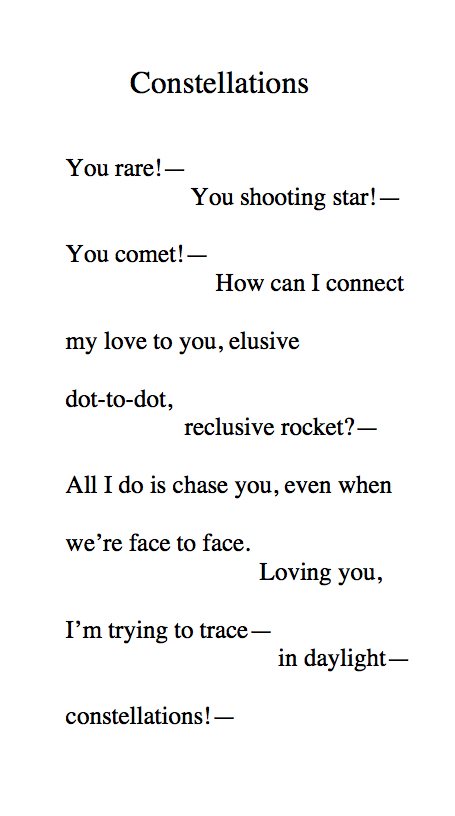Ryan Foo – two poems
Ryan Foo is an undergraduate reading the liberal arts at Yale-NUS College.
I stopped.
1.
I stopped going to church at 17.
All my life, the link seemed tenuous, Jesus
didn’t hold on too tight and I hardly snapped along
to gospel anyway. They were strumming
different chords to mine, really.
Earlier, the holy ghost
of a girl had led her hips and lips to mine,
spectral communion on Sunday afternoons.
My catechism ended when I was caught and
stoned. He didn’t send any thunderbolts.
2.
I stopped going to temples and qingming at 18.
I decided that spirituality was too much work;
my grandfather, ever the investor, would probably
have set up a hedge fund by now. The Mercedes
we bought him would be swathed sacrifice along
with hell notes from six dynasties,
and his gravestone will still be
swept of cobwebs every year whilst his body lies beyond
recognition. Joss sticks become substitutes for cremations,
and the farce of bowing three times stands stark;
a naked emperor — my cousin grudgingly elbows me:
‘nobody ever finds love at a funeral.’
How about we care a little more for the living instead?
3.
I stopped respecting my family at 21.
Insolent fool, what do you know of struggle? You
spilled from my seed, and I raised you
from naught till now —
But Zeus rose up and imprisoned Kronus,
and Oedipus himself was a liminal figure
between sphinx and new gods, Laius.
~
punchup in a garden
what does it mean to have authority?
to bend and snap at the bough
from family trees to attention.
now titrate me someone who can lead
a household, muster and marshal.
i no longer need verbose phraseology,
nor half moves, nor pacifier
once again, shoved in uniforms
enthralled to sugared canes and dining chairs.
love, your bark is worse than your bite,
and the cold fertilises better than emotions. now
germinate anything but the withered shell that
threatens self-immolation before me today.
seeds for growth she sows, she says, but all she does is decay.
Continue reading


